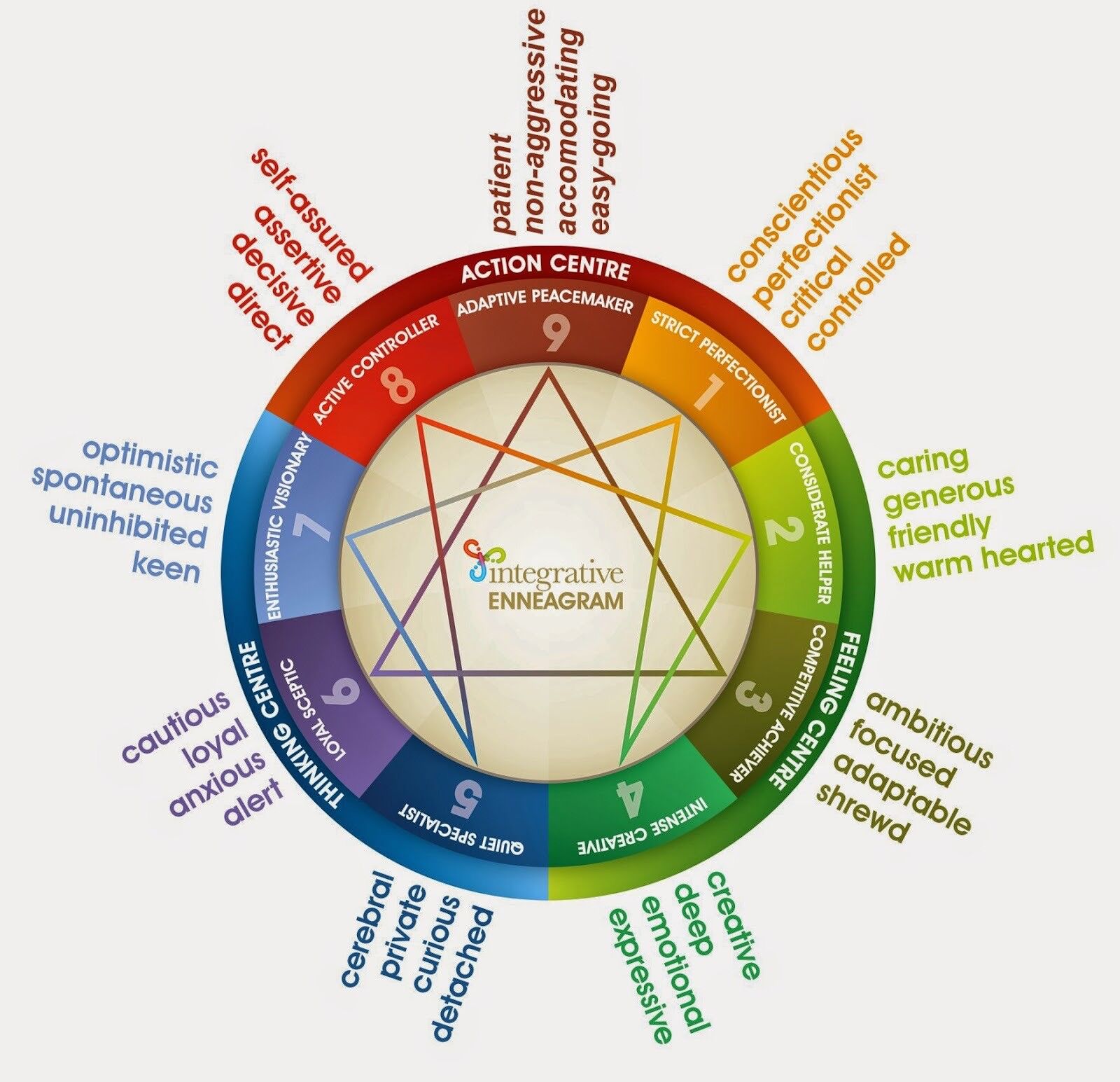By Eva Szekeres
WHAT IS THE ENNEAGRAM?
AND WHY IS IT IMPORTANT FOR LEADERS AND TEAMS?
What is the Enneagram?
The Enneagram is a dynamic personality typology system and self-awareness tool, which shows nine distinct world views, and ways to ‘be’ and relate to the world. The name itself comes from Ennea = Nine in Greek and Gram = drawing, model, points. The model has its roots in ancient philosophical traditions and modern psychology.
The nine styles refers to nine points on the Enneagram symbol – identified as One through Nine – which reflect different thinking habits, feelings and behavioral patterns. The model not only shows us our strengths, weaknesses, motivators and blind spots but also provides each nine types a unique map for their own personal development and growth.
Why is it relevant for leaders?
The Enneagram offers in-depth insights into individuals and enables us to make sense of the complexities of human behavior. It doesn’t box individuals, but rather opens pathways to self-discovery and greater personal awareness. It goes way below surface-level insights and quick fixes. No type is better than another, and each can be effective. The model helps understand that although two behavioral patterns can be similar, there can be radically different motivators behind them, which influences greatly the way they interact with others. This type of learning leads to transformational change and a fundamental shift in our way of thinking, feeling and showing up as a leader, providing the base of what Peter Senge called ‘personal mastery.’
What is your core motivator when you lead?
If leaders are asked to describe their leadership style, very few of them can articulate it well.
Yet it is very clearly related to your Enneagram style. When you recognize it, suddenly a light bulb goes on: “finally my whole life makes sense.” This is a very common reaction for people when they discover their own type the very first time. The clarity which comes from the understanding of the nine different leadership paradigms with their strengths and potential derailers can give you a possibility for transformative growth. You will be able to predict certain behaviors and also design the best developmental activities which can specifically enhance your competencies based on your Enneagram type.
Try it yourself:
Are you a leader, who leads through…?
One
…example, organization, consistency, responsibility, pragmatism, and attention t details
Two
…motivation, developing excellent relationships, supportiveness, and resourcefulness
Three
…clear goals, focus, entrepreneurial spirit, energy, and “can-do” attitude
Four
…values-based vision, creativity, inspiration, compassion, and interpersonal connectedness
Five
…research and planning, logical insight and analysis, objectivity, and expertise
Six
…collaborative, creative problem solving, risk assessment, loyalty, and perseverance
Seven
… innovation, high energy, idea generation, enthusiasm, curiosity, and engagement
Eight
… strategic vision, understanding influence networks, honesty, boldness, and action
Nine
…diplomacy, consensus, inclusiveness, patience, respect for others, and consistency
(Source: Ginger Lapid-Bogda: The Enneagram in Business)
How is it used in the business context?
Although the Enneagram is new to many organizations, the Enneagram is already used (for team building, decoding behavior, personal change, business profiling, brainstorming, coaching) globally by Apple, Boeing, Chrysler, Cisco Systems, Deutsche Bank, Disney, Dropbox, Hyatt, KLM, Kodak Lucent Technologies, Marriott, Motorola, Toyota, VISA, Woolworths, Xerox, British American Tobacco, multiple global governments, Standard Bank, Disney, US Federal Reserve Bank, the CIA, Sun Microsystems, People Soft, Philips Electronics, Price-Waterhouse Coopers, Prudential, Reebok, Shell, Sony, Sun Microsystems, IBM, Procter and Gamble, Duke Energy, Sun International, Levi’s, General Motors, General Electric, Hewlett Packard, Ingram Micro, Nestle, Pfizer, Novartis.
And the enneagram is used in curricula of academic institutions, including Stanford University, UCLA, Antioch University, Harvard Negotiation Institute, Columbia Business School. (source: Special report of The Enneagram in Business Network- Best Practices)
Many organizations use both the Enneagram and the Myers-Briggs (MBTI) because they are highly complementary and focus on different but compatible aspects of human beings. In addition, there have been numerous correlations between Enneagram styles and MBTI types.
Other benefits of using the Enneagram in the business context
Besides the above mentioned individual benefits of using the Enneagram it also builds leadership authenticity, potency, and impact as well as increases compassion for self and others.
On a team level, it improves communication, builds trust, reduces judgment and criticism of others while building understanding and tolerance. On an organizational level, it decreases behind-the-scene organizational politics, improves change management and decreases fear of change. It can unleash organizational creativity through greater individual integration. It develops ways to leverage diversity of thought and talents, contributes to development of talent, and plays a role in enabling culture change.
If you are interested in learning more about the Enneagram, contact us for an assessment and debrief session: the Integrative Enneagram Questionnaire, developed by Integrative Enneagram Solutions. It is intelligent, intuitive, and easy to use. It has cross-cultural validity and has been applied successfully across the world.
Eva Szekeres is Arden’s resident Enneagram expert and will be happy to lead you through this assessment. Contact her for a session.

